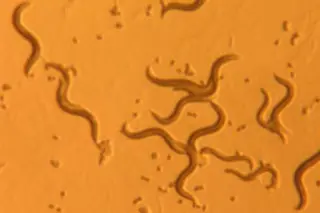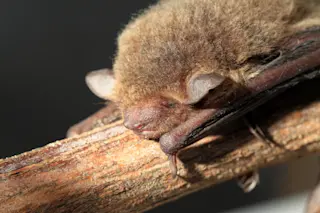A genetic study of worms has challenged the prevailing theory of aging, which holds that organisms eventually break down and die as a result of wear-and tear on their bodies. Researchers have found that certain genes in the worms are genetically programmed to stop functioning as the worm ages; while there's no guarantee that a similar process takes place in humans, the results nevertheless give
hope that science eventually may find a way to stop or reverse the aging process [HealthDay News].
Researchers have thought that aging is
due to damage inflicted on our cellular DNA (genetic material) by factors such as smoking, disease, the sun's ultraviolet rays and chemically reactive molecules called free radicals, which are produced when our cells make energy. [This study] suggests instead that a combination of factors is at play—that in addition to [environmental factors], there are also certain genes that may carry instructions to ...














